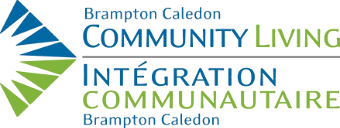The provincial government’s announcement that it will
create a needs-based autism plan for families in Ontario is receiving mixed
reviews.
“I’m very encouraged, but I’m also cautious,” said
Tara Bourgeois, of Brampton, who is the mother of an 8-year-old boy who has
autism. “We’re getting a lot of talk but no action.”
After six months of protests from families over cuts
to autism services, Children, Community and Social Services Minister Todd Smith
announced Tuesday (July 29) the province will continue to provide continuity of
service while the ministry works on a new program for autism services.
The province said it will invest an additional $278
million in Ontario’s autism program, bringing the total amount to $600 million
each year.
Come January, Brampton single-father of autistic boy
will have to pay over $55,000 out of his pocket to cover critical treatment.
‘Significantly impacted’: Nearly 300 ErinoakKids
employees receive layoff notices due to autism funding overhaul
“Ensuring the Ontario Autism Program is needs-based
will help families that require specialized care for their children,”
Mississauga Centre MPP Natalia Kusendova said in a statement. “We must work
together to protect the sustainability of the program so that it can support
children and families today and in the future.”
However, the new program will not be in place until
April 2020.
“Some of these people have been waiting two to four
years,” said Bourgeois. “Many families, unfortunately, will likely be
unhappy as they continue to wait for therapy. I feel their agony as I’ve been
on a wait list before.”
This is an unreasonably slow time frame, according to
the Ontario Autism Coalition (OAC). In the meantime, the OAC said parents are
being told childhood budget cheques will continue to be issued to families on
the wait-list, even though there is agreement a one-size-fits-all approach is
wrong.
“It’s tidy in terms of administration,” said Bruce
McIntosh, past-president of OAC. “It’s based on the province’s needs and not
families.”
Although the province says there are now 25,000
families on the waiting list for services, McIntosh said there is no way to
determine exactly how many families are waiting because of privacy laws.
McIntosh said some families have registered their
child in different regions to expedite access to services. He’s heard of some
parents who have joint custody of a child registering the child twice.
Bourgeois is fortunate her son will get an additional
six months of therapy. But what happens to parents of children who have other
disabilities, such as Down syndrome, asked Bourgeois? “They are left in the
dust.”
In August, OAC will hold another round of protests
outside MPPs’ offices. McIntosh said the message is “hurry the hell up” and get
the program up and running.
